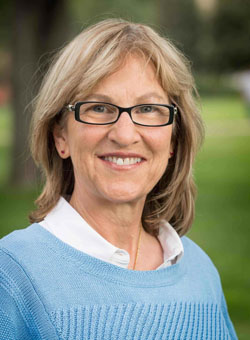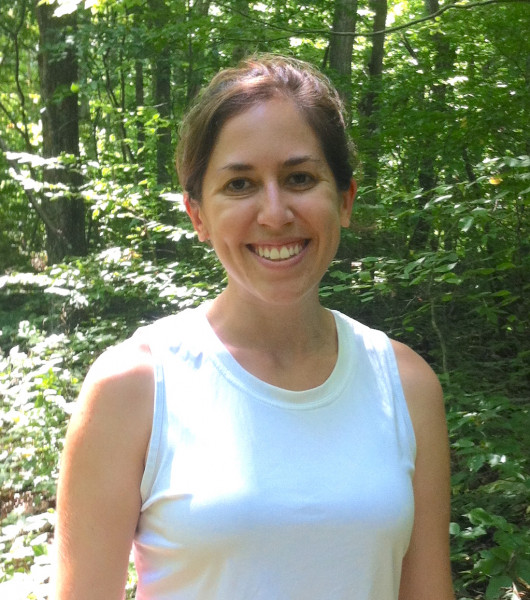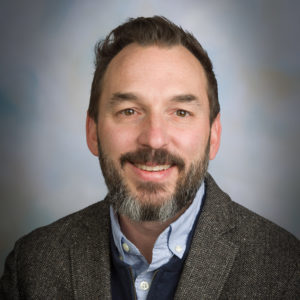Developing Relationships
The Department of Anthropology and Geography actively participates in community and school outreach and public events and forums to educate the public about the importance and contributions of our fields. Outreach programs also give our current students opportunities to participate in and lead educational experiences, and to develop relationships with our community at CSU, in Fort Collins, and throughout Colorado.
Education and Outreach
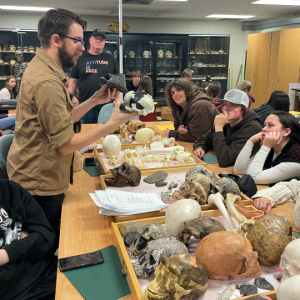
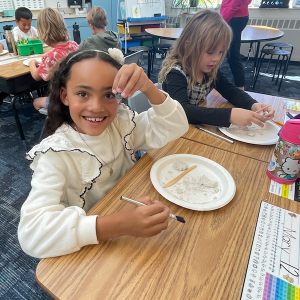
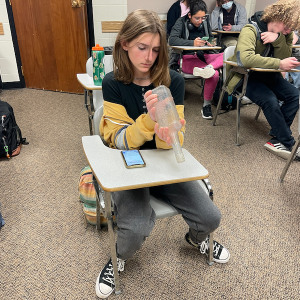
Anthropology and Geography Trunk Show
The department's Anthropology and Geography Trunk Show offers hands-on materials, artifacts, displays, and learning experiences to increase awareness and foster interest in anthropology and geography careers for school and community groups and events.
Opportunities include school visits, presentations, campus field trips and tours to the CSU Archaeological Repository and department labs, and other activities for high-school students, transfer students and new majors, and parents to demonstrate the valuable cultural perspectives and practical training that anthropology and geography offer toward a variety of careers.
Trunk Show activities can complement curriculum in many science and social-studies classes, including Forensic Science, Anatomy and Physiology, Zoology, AP Environmental Science, Geospace Science, AP Human Geography, World Geography and Culture, Anthropology, and other subjects. Our department also considers high-school student interns and "job shadowing" requests.
The Trunk Show also coordinates and leads events at K-8 schools, science nights, family days as well as community events in order to introduce young learners and community members to anthropology, archaeology, paleontology and fossils and geography in our region.
The Trunk Show has led activities with partners, schools, and students including:
-
- Poudre High School, Fort Collins
- Gregory Allicar Museum of Art, Fort Collins
- Northridge High School, Greeley
- Fort Collins High School, Fort Collins
- Ridgeline Middle School, Windsor
- Fossil Ridge High School, Fort Collins
- Compass Community Collaborative School, Fort Collins
- Rice Elementary, Wellington
- Dunn Elementary, Fort Collins
- Columbine Health, Fort Collins
- Linton Elementary, Fort Collins
- James Madison STEAM Academy, Greeley
- Laurel Elementary, Fort Collins
- Polaris Expeditionary Learning School, Fort Collins
- Bauder Elementary, Fort Collins
- Sarah Milner Elementary, Loveland
- Centennial High School, Fort Collins
TRUNK SHOW BY THE NUMBERS
SINCE AUGUST 2023
Are you a teacher or student interested in setting up a school visit or field trip, or just want to know more?
Public Engagement
Our Department of Anthropology and Geography is strongly committed to public scholarship. In each area of faculty expertise, we conduct research that contributes to building public awareness and knowledge.
The motivation behind “engaged” or “public” scholarship in the US is as old as the founding of land grant universities themselves, established by the Morrill Act of 1862. But the ethic of strong connections between academic knowledge producers and the non-academic public found its modern voice and institutional urgency in Ernest Boyer’s seminal book Scholarship Reconsidered: Priorities of the Professoriate (1990). Boyer argued that “in no time in our history has the need been greater for connecting the work of the academy to the social and environmental challenges beyond the campus” (1990:xii). In a later publication, Boyer further stated that “the academy must become a more vigorous partner in the search for answers to our most pressing social, civic, economic and moral problems, and must reaffirm its historic commitment to what I call the scholarship of engagement” (1996:11).

Stephen J. Leisz
- Professor
As part of his work in Vietnam and Laos, Geography Professor Leisz has engaged Province, District, and Commune level officials in discussing the drivers of local changes that are on-going. These efforts have included organizing participant discussions on new issues facing local communities and outreach efforts have led to insights regarding how land use and local livelihoods are changing. It is hoped that through co-research like this, local concerns will be able to be heard by higher-level policy makers.

